VET 2025_ Event Postponement
This is to inform that due to some circumstances beyond the organizer control, "2nd Edition of International Conference on Veterinary Science" (VET 2025) June 09-11, 2025 | Hybrid Event has been postponed. The updated dates and venue will be displayed shortly.
Your registration can be transferred to the next edition, if you have already confirmed your participation at the event.
For further details, please contact us at veterinary@magnusconference.com or call + +1 (702) 988 2320.
Veterinary Vaccines
Veterinary vaccinations have played a significant role in protecting animal and human health, minimizing animal suffering, enabling efficient food animal production to support the growing human population, and considerably reducing the demand for antibiotics to treat food and companion animals. Animal vaccines that are both safe and effective are critical in today's society. Without vaccines to prevent epizootics in food-producing animals, producing enough animal protein to feed the world's almost 7 billion people would be impossible. Veterinary vaccinations are used in livestock and poultry to boost overall productivity and maintain animal health. Vaccines for zoonotic illnesses in food animals, companion animals, and even wildlife have significantly reduced the prevalence of zoonotic diseases in humans. Antibiotics are used less frequently to treat diseases in food-producing and companion animals thanks to veterinary vaccinations.
- Veterinary Parasite/Bacterial/Viral/Fungal Vaccines
- Zoonotic Disease Vaccines
- Veterinary Vaccine Technology
- Operational Research
- Clinical Trials
- Host Immunology Mechanisms
- Immunopathogenesis
- Immune Responses to Vaccines
- Vaccine Development and Efficacy Evaluation
- Vaccine Vectors
- Adjuvants and Immunomodulators
- Vaccine Safety

Marco Polettini
DVM, Italy
Andreia Freitas
INIAV/REQUIMTE, Portugal
Andreia Freitas
INIAV/REQUIMTE, Portugal
Kedibone Gloria Kgosana
Sefako Makgatho Health Sciences University, South Africa
Nnenna Ugwu
Anglia Ruskin University, United Kingdom
Rubens Dias de Melo Junior
Universidade Federal de Goiás, BrazilSubmit your abstract Today
Important Alert:
X


Title : Analyzing veterinary medicine residues in food: A comprehensive guide
Andreia Freitas, INIAV/REQUIMTE, Portugal
Title : Quantifying changes in facial expression following hot-iron disbudding under procaine hydrochloride and meloxicam treatment in Holstein dairy calves
Nnenna Ugwu, Anglia Ruskin University, United Kingdom
Title : Trypanosoma vivax in and outside cattle blood: Parasitological, molecular, and serological detection, reservoir tissues, histopathological lesions, and vertical transmission evaluation
Rubens Dias de Melo Junior, Universidade Federal de Goiás, Brazil
Title : Characterization of porcine rotaviruses in the Czech Republic
Romana Moutelikova, Veterinary Research Institute, Czech Republic
Title : Determination of Circulating Foot-and-Mouth Disease Virus Serotypes in Kenya (2023)
Hellen Mutua, Foot and Mouth Disease National Reference Laboratories, Kenya
Title : Welfare for Amazonian wild animals
Eliane Cardoso Carvalho Moraes, Jungle Warfare Training Center/ Army, Brazil